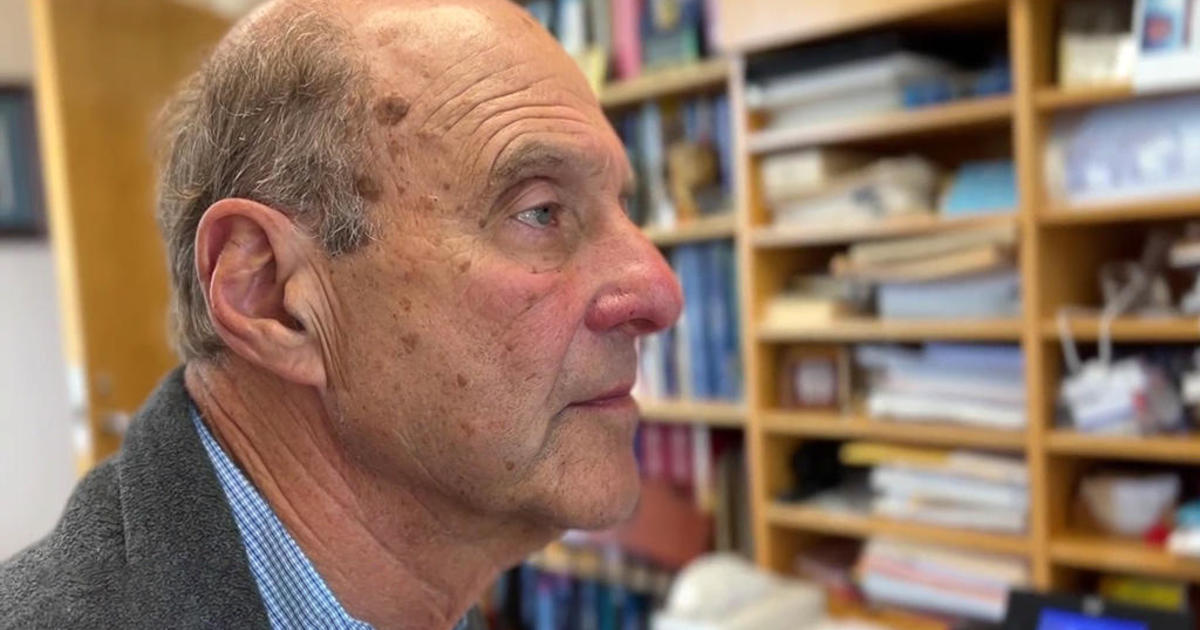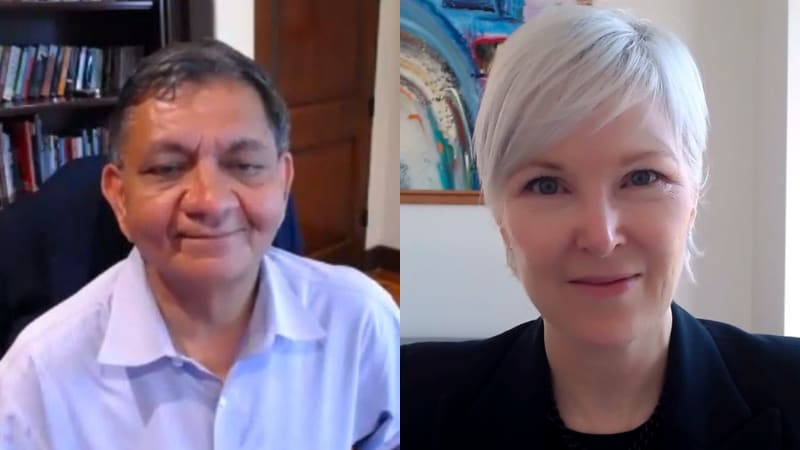News Mentions for the week of July 10, 2023
Our experts are often called upon to provide insight on current events and topics in the news. Here are some of the articles Stanford Psychiatry faculty have been interviewed for in recent weeks.
- AP News
Online, 'unalive' means death or suicide. Experts say it might help kids discuss those things
Language has always evolved. New words have always popped up. Teenagers have often led the way. But the internet and online life pave the way for it to happen more quickly. Steven Adelsheim, clinical professor of psychiatry and behavioral sciences, provides comment.
- Stanford HAI
Neural Networks Help Us Understand How the Brain Recognizes Numbers
New research using artificial intelligence suggests that number sense in humans may be learned, rather than innate. This tool may help us understand mathematical disabilities. Vinod Menon, the Rachael L. and Walter F. Nichols, MD professor of psychiatry and behavioral sciences, and Percy Mistry, a research scholar in psychiatry and behavioral sciences, are quoted.
- Scope Blog - Stanford Medicine
It's not 'just cannabis,' Stanford Medicine expert warns
As a longtime psychiatric clinician specializing in substance use disorders and addiction and chair of the American Psychiatric Association's Council on Addiction Psychiatry, Stanford Medicine's Smita Das, clinical associate professor of psychiatry and behavioral sciences, has had a front-row seat to the aftershocks of America's cultural about-face on cannabis.
- CBS Bay Area
Medical experts task force recommends adults be screened for anxiety
The U.S. Preventive Services Task Force recommends that adults get screened for anxiety disorders. David Spiegel, Willson Professor of psychiatry and behavioral sciences, is interviewed about screening for anxiety in this CBS Bay Area segment.
- CNET
Can Sleep Banking Help You Catch Up On Rest? What to Know
You can put money in the bank for later use, but sleep isn't quite the same. Rafael Pelayo, clinical professor of psychiatry and behavioral sciences, provides comment.
- Stanford Magazine
Me, Myself, and AI
Artificial intelligence has entered a new era. Here’s how we stay human. Adam Miner, clinical assistant professor of psychiatry and behavioral sciences, is quoted along with Stanford colleagues in this article.
- Medscape: In Discussion
Subtypes and Biotypes in the Treatment of Major Depression
Dr. Madhukar Trivedi is joined by guest Leanne Williams, Vincent V.C. Woo professor of psychiatry and behavioral sciences, to discuss defining subtypes and biotypes for depression to tailor more personalized treatments of major depressive disorder.
- The Modesto Bee
Will California legalize psychedelic mushrooms? A Modesto lawmaker is voting ‘No’.
A state senate bill to decriminalize psychedelics in California cleared another hurdle Tuesday. SB 58 would remove criminal penalties for possession of psilocybin, mescaline and other plant-based substances that became illegal during the war on drugs. Anna Lembke, professor of psychiatry and behavioral sciences, is quoted on the topic.
- Huberman Lab
How Your Brain's Reward Circuits Drive Your Choices
In this episode, Dr. Huberman's guest is Robert Malenka, the Nancy Friend Pritzker professor of psychiatry and behavioral sciences, who has made numerous seminal discoveries of how the brain changes (neuroplasticity) in response to learning and in response to rewarding and reinforcing experiences.
- News Center - Stanford Medicine
Children with autism have broad memory difficulties, Stanford Medicine-led study finds
Memory impairment in autism goes beyond poor facial recognition, a Stanford Medicine team showed. The finding suggests a wide role for memory in the neurobiology of the disorder. Jin Liu, postdoctoral scholar in psychiatry and behavioral sciences, and Vinod Menon, the Rachael L. and Walter F. Nichols, MD professor of psychiatry and behavioral sciences, are quoted.
- Diverse: Issues In Higher Education
Forging Engineering Pathways
Favour Nerrise was interested in engineering even before she knew what it was. As young as 5 growing up in Cameroon, Favour was the one her family relied on to repair a broken television or telephone. "I don't know how or why, but I knew how to fix everything" she says. Favour Nerrise, a graduate student in Stanford's PhD electrical engineering program and lab member in psychiatry and behavioral sciences, and Ehsan Adeli, clinical assistant professor of psychiatry and behavioral sciences, are interviewed in this article.
- NY Times
Substance Abuse Is Climbing Among Seniors
Many aging baby boomers have long histories with drugs, cannabis and alcohol. “The field wasn’t ready for that,” said one expert. Keith Humphreys, the Esther Ting Memorial professor of psychiatry and behavioral sciences, provides comment.









